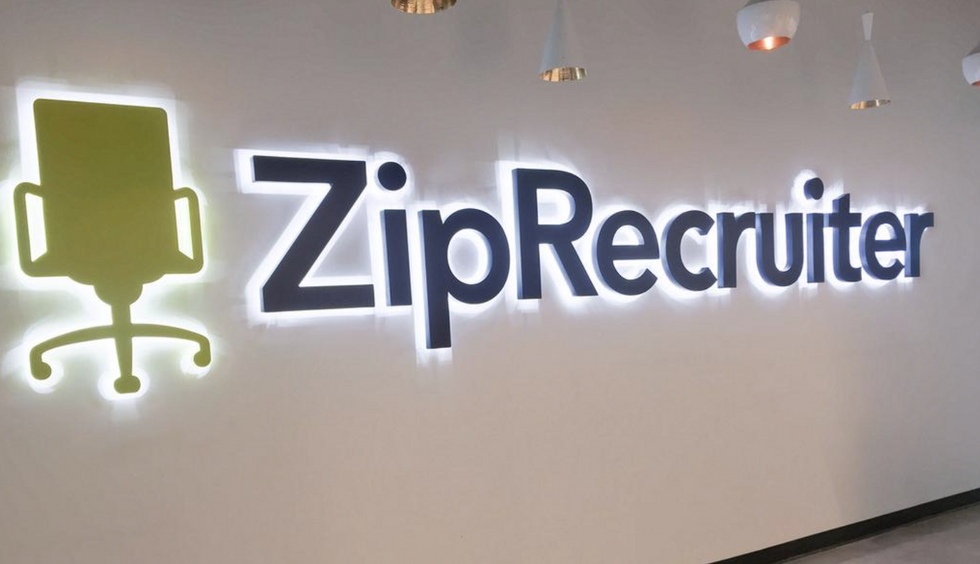As Labor Market Sputters, Patterns Form for Eventual Economic Rebound
Sam primarily covers entertainment and media for dot.LA. Previously he was Marjorie Deane Fellow at The Economist, where he wrote for the business and finance sections of the print edition. He has also worked at the XPRIZE Foundation, U.S. Government Accountability Office, KCRW, and MLB Advanced Media (now Disney Streaming Services). He holds an MBA from UCLA Anderson, an MPP from UCLA Luskin and a BA in History from University of Michigan. Email him at samblake@dot.LA and find him on Twitter @hisamblake

As regions nationwide steel themselves for the oncoming peaks of COVID-19 cases, the U.S. economy continues to stumble. But some emerging patterns suggest certain changes once it stabilizes.
For now, JPMorgan economists forecasted this week a 40% annualized decline in U.S. GDP for the second quarter, and a 20% surge in April's unemployment rate, with 25 million jobs lost. The number of people seeking unemployment benefits in the past three weeks totals 16.8 million.
What could be in store once the economy rebounds?
As a tech-savvy online jobs marketplace, ZipRecruiter has a unique vantage point to monitor and forecast the labor market. Labor economist Julia Pollak spoke with dot.LA about what the latest batch of data signals for the other side of the crisis.
Show Me the Data
"This recession is like no other we've experienced," said Pollak. "People are calling this the Great Cessation."
Some people "will find that during the recovery the economy will have changed beneath their feet."
There is no sugarcoating the gloom. According to figures ZipRecruiter provided to dot.LA, average daily job postings across the internet have been declining for six straight weeks; worse, the rate of decline has been accelerating. In all but four of the 27 industries that ZipRecruiter tracks, job postings have plunged between the weeks ending March 8th through April 5th.
Travel (-51%) and tourism (-31%) have been hit hardest. So have states dependent on these industries, like Hawaii (-25%) and Nevada (-24%). These states and sectors are highly sensitive to nationwide trends, noted Pollak, meaning once things start to rebound, they should see relatively quick recoveries.
Conversely, some job postings are growing fast. These include jobs* in:
- Transportation: Commercial Flatbed Truck Driver postings are +2,614% over the past four weeks; Truck Driver Trainer +634%
- Storage: Warehouse Laborer +83%, Warehouse Sorter +62%
- Finance and Insurance: Claims Adjuster +212%, Financial Sales +93%
- E-commerce: Distribution Associate +232%, Grocery Shopper +17%
- Healthcare and Social Assistance: Intensive Care Nurse +188%, Nursing Assistant +184%
The best predictor of future behavior...
As for what these foretell regarding the future economic contours, Pollak suggests also looking at past trends.
"All kinds of slow, gradual transformations that we were seeing in the economy before are now going to happen very quickly," she forecasted.
This includes the decline of certain industries, like manufacturing and retail. "Stores will go into bankruptcy much sooner than they might have," noted Pollak.
Other industries are likely to continue their ascent. "The healthcare sector has added 278,000 jobs each year on average over the past 10 years," said Pollak. Expect more growth, especially given pent-up demand for elective procedures (assuming age demographic trends mostly hold).
Meanwhile, workers and consumers are acclimating to formerly peripheral activities now becoming mainstream.
"Some of the growth that's occurring now in e-commerce, distance learning and telemedicine will be permanent," Pollak predicted.
Throughout the economy, "people are learning new technologies (and) interacting with new goods and services that they hadn't used before. And some are enjoying the experience."
Fitter, Happier, More Productive
Firms, too, are adapting to new ways of doing business, which could mean increased productivity in the long run. "Companies have been forced to invest in all kinds of technology that may have been available and would have resulted in huge cost savings, and didn't (invest) because of inertia, but now that they've become familiar (with these technologies) they'll use them to great benefit," noted Pollak.
Reducing headcount, though often painful (and sometimes unceremonious), may also ultimately make companies healthier.
"People get confused when the stock market goes up despite people losing their jobs," tweeted former Presidential candidate Andrew Yang on Thursday. "The truth is that many companies will be more profitable and efficient with fewer employees."
As working from home becomes commonplace, companies will be able to reduce land costs; and those unit costs will likely be cheaper. Some studies suggest a distributed workforce may increase productivity.
Workers on the low-end of the earnings distribution may become more productive, too.
Pollak has found that the federal aid package, combined with unemployment benefits, has left nearly half of all American workers at least as well paid as they were before the pandemic--albeit temporarily. "This offers an opportunity for many low-wage workers to overcome barriers they had to higher-wage employment in better jobs before," she said. There is no guarantee such workers will seize that opportunity, but many now have the time and financial support to train for skills, certificates and licenses that were previously out of reach.
The big question is the extent to which the damage done to the labor market overmatches the positive trends--and how long it will take to close that gap. The longer the health crisis lasts, the worse the problem will become so long as net jobs continue to decline.
In the meantime, actions like those taken by the Fed and Congress will buy the economy time, in hopes of hastening what ZipRecruiter Chief Executive Officer Ian Siegel called the "great American comeback story to come."
- paycheck-protection-program - dot.LA ›
- ziprecruiter - dot.LA ›
- What ZipRecruiter Sees for the Economy's Eventual Rebound - dot.LA ›
- U.S. Has Entered Recession, UCLA Economists Predict - dot.LA ›
- montgomery-summit - dot.LA ›
- Could Coronavirus Push the U.S. Economy Into a Recession? ›
- Coronavirus Updates: Bars, Gyms and Theaters Close Countywide - dot.LA ›
- NBCUniversal Lets Peacock Loose - dot.LA ›
- UCLA Anderson Finds it Will Take 3 Years to Recover from COVID-19 - dot.LA ›
- Fewer Job Searchers Are Looking to Work at Startups - dot.LA ›
- ZipRecruiter CEO Ian Siegel on the Post-COVID Job Market - dot.LA ›
Sam primarily covers entertainment and media for dot.LA. Previously he was Marjorie Deane Fellow at The Economist, where he wrote for the business and finance sections of the print edition. He has also worked at the XPRIZE Foundation, U.S. Government Accountability Office, KCRW, and MLB Advanced Media (now Disney Streaming Services). He holds an MBA from UCLA Anderson, an MPP from UCLA Luskin and a BA in History from University of Michigan. Email him at samblake@dot.LA and find him on Twitter @hisamblake






 Image Source: Skyryse
Image Source: Skyryse